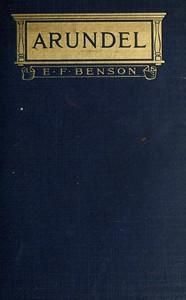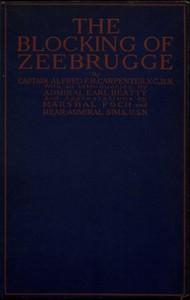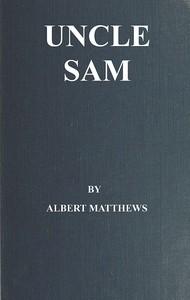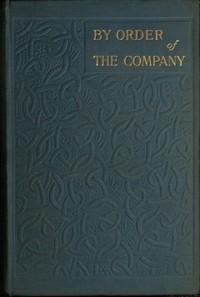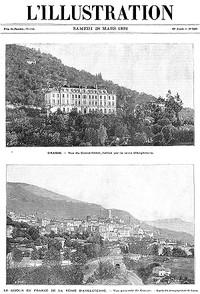|
|
Read this ebook for free! No credit card needed, absolutely nothing to pay.Words: 103939 in 33 pages
This is an ebook sharing website. You can read the uploaded ebooks for free here. No credit cards needed, nothing to pay. If you want to own a digital copy of the ebook, or want to read offline with your favorite ebook-reader, then you can choose to buy and download the ebook.

: Arundel by Benson E F Edward Frederic - Triangles (Interpersonal relations) Fiction; Man-woman relationships Fiction; British India Fiction; Suburban life Fiction; England Social life and customs 20th century Fiction; Families Fiction; Suburbs England Lond@FreeBooksWed 07 Jun, 2023 But there was no life on it. No animals roamed its continents. No vegetation grew from its rocks. Not even bacteria struggled with its stones to turn them into soil. So there was no soil. Rock and stones and gravel and even sand--yes. But no soil in which any vegetation could grow. No living thing, however small, swam in its oceans, so there was not even mud on its ocean-bottoms. It was one of that disappointing vast majority of worlds which turned up when the Galaxy was first explored. People couldn't live on it because nothing had lived there before. Its water was fresh and its oceans were harmless. Its air was germ-free and breathable. But it was of no use whatever for men. The only possible purpose it could serve would have been as a biological laboratory for experiments involving things growing in a germ-free environment. But there were too many planets like that already. When men first traveled to the stars they made the journey because it was starkly necessary to find new worlds for men to live on. Earth was over-crowded--terribly so. So men looked for new worlds to move to. They found plenty of new worlds, but presently they were searching desperately for new worlds where life had preceded them. It didn't matter whether the life was meek and harmless, or ferocious and deadly. If life of any sort were present, human beings could move in. But highly organized beings like men could not live where there was no other life. No other ship came near the planet for eight hundred years. Now, too, the star-ships were faster. A hundred light-years was a short journey. A thousand was not impractical. Explorers had gone many times farther, and reported worlds still waiting for mankind on beyond. But still the great majority of discovered planets did not contain life. Whole solar systems floated in space with no single living cell on any of their members. More centuries passed. Human ships again improved. A thousand light-years became a short journey. Explorers reached the Galaxy's very edge, and looked estimatingly across the emptiness toward other island universes. There were colonies in the Milky Way. There were freight-lines between star-clusters, and the commercial center of human affairs shifted some hundreds of parsecs toward the Rim. There were many worlds where the schools painstakingly taught the children what Earth was, and where, and that all other worlds had been populated from it. And the schools repeated, too, the one lesson that humankind seemed genuinely to have learned. That the secret of peace is freedom, and the secret of freedom is to be able to move away from people with whom you do not agree. There were no crowded worlds any more. But human beings love children, and they have them. And children grow up and need room. So more worlds had to be looked out for. They weren't urgently needed yet, but they would be. They were highly satisfactory, from a technical point of view. Now there was soil which swarmed with minute living things. There were fungi which throve monstrously. The seas stank of minuscule life-forms. There were even some novelties, developed by the strictly local conditions. There were, for example, paramoecia as big as grapes, and yeasts had increased in size until they bore flowers visible to the naked eye. The life on the planet was not aboriginal, though. All of it was descended and adapted and modified from the micro?rganisms planted by the seed-ship whose hulk was long since rust, and whose crew were merely names in genealogies--if that. When the Ecology-Ship left, it had done a very painstaking job. It had treated the planet to a sort of Russell's Mixture of life-forms. The real Russell's Mixture is that blend of the simple elements in the proportions found in suns. This was a blend of life-forms in which some should survive by consuming the now-habituated flora, others by preying on the former. The planet was stocked, in effect, with everything that it could be hoped would live there. But only certain things could have that hope. Nothing which needed parental care had any chance of survival. The creatures seeded at this time had to be those which could care for themselves from the instant they burst their eggs. So there were no birds or mammals. Trees and plants of many kinds, fish and crustaceans and tadpoles, and all kinds of insects could be planted. But nothing else. There should have been another planting centuries later. There should have been a ship from the Zo?logical Branch of the Ecological Service. It should have landed birds and beasts and reptiles. It should have added pelagic mammals to the seas. There should have been herbivorous animals to live on the grasses and plants which would have thriven, and carnivorous animals to live on them in turn. There should have been careful stocking of the planet with animal life, and repeated visits at intervals of a century or so to make sure that a true ecological balance had been established. And then when the balance was fixed men would come and destroy it for their own benefit. But there was an accident. So the planet which had no name was forgotten. No other ship came to prepare it for ultimate human occupancy. It circled its sun, unheeded and unthought-of. Cloud-banks covered it from pole to pole. There were hazy markings in some places, where high plateaus penetrated its clouds. But that was all. From space the planet was essentially featureless. Seen from afar it was merely a round white ball--white from its cloud-banks--and nothing else. Free books android app tbrJar TBR JAR Read Free books online gutenberg More posts by @FreeBooks
: The Blocking of Zeebrugge by Carpenter Alfred Francis Blakeney - World War 1914-1918 Naval operations British; Zeebrugge-Ostend Raids 1918 World War I@FreeBooksWed 07 Jun, 2023

: Uncle Sam by Matthews Albert - National characteristics American; Uncle Sam (Symbolic character)@FreeBooksWed 07 Jun, 2023
|
Terms of Use Stock Market News! © gutenberg.org.in2025 All Rights reserved.

